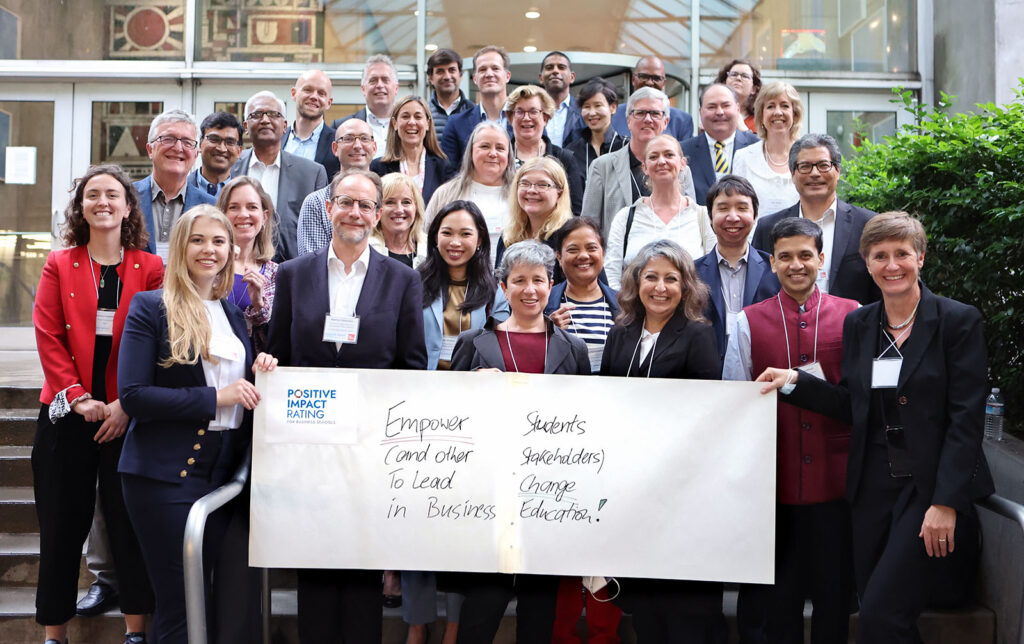Carleton’s Sprott School of Business achieves Transforming level in the Positive Impact Rating

The Sprott School of Business at Carleton University was recognized for its social impact and sustainability achievements when the Positive Impact Rating (PIR) results were launched Friday at the UN PRME Global Forum in New York City. Sprott was one of 45 business schools from 21 countries worldwide that took part in the rating this year and achieved Level 4, making it a Transforming school within the PIR. Sprott ranked the highest among Canadian business schools in the PIR.
The PIR is a rating conducted by students and for students. For the third time, students worldwide assessed their business schools on how they perceive their positive impact in the world. The positive impact of business schools goes beyond their contribution to business and the economy; it addresses the need for their positive impact for society.
Students assessed how the Sprott School of Business addresses societal and sustainable challenges and prepares its students to be responsible business leaders. The data collection in Sprott was organized and led by the Sprott Business Students’ Society, who distributed the PIR survey across campus to their fellow students.
Participating in the PIR demonstrates the value Sprott gives to student feedback and voice.
“Thank you to our students at the Sprott School of Business who shared their ideas and comments in the PIR assessment,” said Dean Dana Brown. “The joint commitment of deans attending the PRME Global Forum ‘to empower students (and other stakeholders) to lead change in business education’ reflects our trust and faith in youth and our communities to respond to the challenges and opportunities of our time. A call to action for us to widen and deepen the processes of co-creation in our school.”

The rating survey asks students 20 questions in seven relevant impact dimensions that sit within three areas: Energizing, Educating, and Engaging. The overall PIR score of the business school is used to position the schools across five levels. The different levels refer to the developmental stage of the business school, rating it by a certain level of achievement. Business schools are provided with a defined social impact and a tool that they can use for change.
Prof. Thomas Dyllick, PIR Founder & Member of the Supervisory Board said, “While future students now have an alternative source to select their business school, schools refer to the PIR primarily to measure and communicate their transformational progress. The voice of the student has become a true source of value.”
The PIR was created by concerned business school experts together with global NGOs – WWF, Oxfam, and UN Global Compact. International student associations oikos, AIESEC, and Net Impact partner with PIR, supported by VIVA Idea (Costa Rica), The Institute for Business Sustainability Foundation & Fehr Advice, both from Switzerland.
The Principles for Responsible Management Education (PRME) is a United Nations-supported initiative founded in 2007 as a platform to raise the profile of sustainability in schools around the world, and to equip today’s business students with the understanding and ability to deliver change tomorrow.